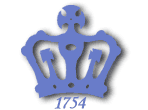City University of New York Makes It Harder for Black Students to Gain Admission to Four-Year Colleges
 The City University of New York has announced that it is raising admission requirements at its four-year colleges. In the past students seeking admission to one of the 11 four-year colleges of the CUNY system needed a score of at least 480 on the mathematics portion of the SAT college admission test. Now students will need to score 510 on the mathematics SAT in order to be considered for admission to the Baruch College, Brooklyn College, City College, Hunter College, and Queens College, the five most highly regarded of the CUNY campuses. Students will need to score a 500 on the mathematics SAT to gain admission to the other six four-year campuses of the CUNY system. Students who score below 500 on the mathematics SAT will only be eligible for two-year community colleges. The City University of New York has announced that it is raising admission requirements at its four-year colleges. In the past students seeking admission to one of the 11 four-year colleges of the CUNY system needed a score of at least 480 on the mathematics portion of the SAT college admission test. Now students will need to score 510 on the mathematics SAT in order to be considered for admission to the Baruch College, Brooklyn College, City College, Hunter College, and Queens College, the five most highly regarded of the CUNY campuses. Students will need to score a 500 on the mathematics SAT to gain admission to the other six four-year campuses of the CUNY system. Students who score below 500 on the mathematics SAT will only be eligible for two-year community colleges.
In New York State the mean score for black students on the mathematics section of the SAT in 2006 was 431. This is 69 points below the minimum score now required for admission to a four-year CUNY college. Thus, two thirds or more of all black high school graduates in New York State will now be ineligible for admission to a CUNY four-year campus.
Even before the new admission requirements were set in place, black enrollments at the most selective of the CUNY campuses have declined in recent years. In 2006 blacks made up 14 percent of all enrollments at the five colleges which will have the toughest SAT score requirement. In 1999, blacks were 20 percent of the students at these schools.
Stephen Steinberg, a professor of sociology at CUNY’s Queens College, told JBHE, “This is yet another grim reminder that affirmative action is dead. With one hand, Chancellor Matthew Goldstein launches a Black Male Initiative to bemoan declining enrollments of blacks at CUNY, and with the other hand he raises entrance standards that, as past experience shows, will sharply decrease black enrollment. The end result will be a segregated system with the vast majority of black students restricted to community colleges. The whole point of affirmative action was to reach out for qualified minority students who might come up short on standardized tests.”
Andrew Hacker, professor at Queens College and author of many important books on race relations, told JBHE, “What I find particularly mindless is the focus on mathematics scores. Millions of adults who can’t set up or solve a quadratic equation want to keep SAT-tested mathematics as a requisite for college admission, and indeed, a requirement for all bachelor’s degrees. In their view, they are signs of rigor. In fact, these mathematics hurdles discriminate not only racially, but against against women and students whose talents are in the arts and humanities.”
  |
“If you’re rich you can enroll your children in Kaplan or Princeton Review or even get private tutors to coach your kids in the tricks of test taking and thereby increase their SAT scores by a couple of hundred points. . . . It comes down to this: If you’re rich you can buy your kids a high SAT score.”
— Charles Murray, W.H. Brady Scholar at the American Enterprise Institute, calling for the abolishment of the SAT requirement for admission to colleges and universities in The American, July 2007
|
Finally Some Good News at Florida A&M University
 New Florida A&M University President James H. Ammons could use some good news. The historically black university in Tallahassee was placed on probation by the Southern Association of Colleges and Schools, it has been accused of numerous violations by the National Collegiate Athletic Association, and Ammons was saddled with a multitude of financial and administrative problems left over from previous administrators. At the first pay period after he took over, more than 200 university employees did not receive their paychecks. New Florida A&M University President James H. Ammons could use some good news. The historically black university in Tallahassee was placed on probation by the Southern Association of Colleges and Schools, it has been accused of numerous violations by the National Collegiate Athletic Association, and Ammons was saddled with a multitude of financial and administrative problems left over from previous administrators. At the first pay period after he took over, more than 200 university employees did not receive their paychecks.
But good news finally has occurred. The board of trustees approved a $750,000 appropriation for Ammons to deal with the immediate problems concerning the university’s accreditation. The university also reported that first-year enrollments are up significantly from a year ago. University officials are anticipating 1,931 freshman students this year, up from 1,676 a year ago. This is an increase of more than 15 percent. Increased tuition revenues will help the university meet its budget goals.
University of Virginia Sponsors Summer Language Institute to Attract Black Students to Its Graduate Programs
 In an effort to increase racial diversity in graduate programs, the University of Virginia is sponsoring a summer institute in foreign languages for five students from black colleges and universities. The students, from Virginia State University, Norfolk State University, and St. Paul’s College, received full-tuition scholarships for the nine-week program. This year students are taking courses in Spanish, Italian, and Chinese. Social events are also planned so the students can become accustomed to the campus environment. In an effort to increase racial diversity in graduate programs, the University of Virginia is sponsoring a summer institute in foreign languages for five students from black colleges and universities. The students, from Virginia State University, Norfolk State University, and St. Paul’s College, received full-tuition scholarships for the nine-week program. This year students are taking courses in Spanish, Italian, and Chinese. Social events are also planned so the students can become accustomed to the campus environment.
The university hopes to expand the program to 10 black students next year and eventually 20 to 25 students will be invited to the Summer Language Institute.
Magazine Lists Historically Black Clark Atlanta University as Having One of the 10 Best College Mottos in the United States
 In the classic comedy film Animal House, the motto of the fictional Faber College was “Knowledge Is Good.” In the classic comedy film Animal House, the motto of the fictional Faber College was “Knowledge Is Good.”
Many colleges and universities in the real world have mottos that were conceived with a little more thought. Motto magazine has identified what it considers to be the 10 best college mottos. Among these are Brigham Young University’s “Enter to learn, go forth to serve” and Seton Hall University’s “Whatever risk, yet go forward.”
One of the 10 best mottos, according to the magazine, belongs to Clark Atlanta University, the historically black educational institution in Georgia. Clark Atlanta University’s motto is “I’ll find a way or make one.”
In Memoriam
Oliver W. Hill (1907-2007)
 Oliver W. Hill, a member of the legal team which argued Brown v. Board of Education before the U.S. Supreme Court, died from heart failure at his Richmond, Virginia home. He was 100 years old. Oliver W. Hill, a member of the legal team which argued Brown v. Board of Education before the U.S. Supreme Court, died from heart failure at his Richmond, Virginia home. He was 100 years old.
Hill was a native of Richmond but grew up in Washington, D.C. He attended Dunbar High School and in 1931 earned a bachelor’s degree at Howard University. In 1933 he finished second to Thurgood Marshall in his class at Howard University School of Law.
After struggling to establish a career during the depression, Hill opened a law practice in Richmond in 1939 and won his first civil rights case a year later. At one point in his career, he worked simultaneously on 75 different civil rights lawsuits.
After serving in the Army during World War II, Hill returned to Richmond and was elected to the city council, the first African American in the twentieth century to do so. In 1951 Hill was the lead attorney in one of the five school desegregation cases that eventually were joined together to form Brown v. Board of Education, ultimately decided by the Supreme Court in 1954.
Hill practiced law for 60 years before his sight began to fail in the late 1990s. In 1999 he was presented with the Medal of Freedom by President Bill Clinton.
Sekou Sundiata (1948-2007)
 Sekou Sundiata, poet of the Black Arts Movement, musical performer, and college professor, died from a heart attack at a hospital in Valhalla, New York. He was 58 years old. Sekou Sundiata, poet of the Black Arts Movement, musical performer, and college professor, died from a heart attack at a hospital in Valhalla, New York. He was 58 years old.
Born Robert Franklin Feaster, he changed his name in the late 1960s while a student radical at the City College of New York. He earned a bachelor’s degree and a master’s degree in English from CUNY.
Sundiata often performed his poetry backed by music. Often these performances included dance and theater. Sundiata suffered from hypertension and was on dialysis for 18 months before receiving a kidney transplant in 1999.
In addition to writing and performing, Sundiata taught at Eugene Lang College at New School University in New York City.
Evelyn Davidson White (1921-2007)
Evelyn Davidson White, former professor of music and choral director at Howard University in Washington, D.C., died of heart disease at her home in the nation’s capital. She was 86 years old.
Professor White served on the Howard faculty for 39 years. Among her students were opera star Jessye Norman and pop singer Roberta Flack.
White was the associate director of the Howard University Choir for 25 years, serving under Warner Lawson. When Lawson died in 1971, White served as director of the choir for three years. She resigned from this position in 1974 to take care of her husband, but she continued to teach until her retirement in 1985.
Professor White was a native of Charlotte, North Carolina. After graduating from high school at age 15, she enrolled in Barber-Scotia College in Concord, North Carolina. She later graduated from Johnson C. Smith University in Charlotte.
White was the author of the 1981 book Choral Music by Afro-American Composers.
Gerald R. Gill (1948-2007)
 Gerald Gill, a fixture on the Tufts University campus for the past quarter century, died late last month at his home in Cambridge, Massachusetts. He suffered from arterial sclerosis. Gerald Gill, a fixture on the Tufts University campus for the past quarter century, died late last month at his home in Cambridge, Massachusetts. He suffered from arterial sclerosis.
Gill was one of the most beloved faculty members on the Tufts campus. His history classes were always filled to capacity. He was twice named professor of the year in Massachusetts.
A native of New Rochelle, New York, Gill was a graduate of Lafayette College in Easton, Pennsylvania. He earned a master’s degree and a Ph.D. in history from Howard University. In 1979 he came to Massachusetts on a postdoctoral fellowship from Harvard University. A year later he joined the faculty at Tufts.
A Tufts alumnus told JBHE, “Professor Gill gave more to his students than anybody else at Tufts and inspired thousands of students to further their knowledge and better themselves through education. His loss leaves an irreplaceable void in the Tufts community.”
Grants
• The Charles R. Drew University of Medicine in Science, a predominantly black institution in Los Angeles, received a five-year, $11.5 million grant from the U.S. Department of Education. The grant will be used to strengthen academic programs and student services.
• Hampton University, the historically black educational institution in Virginia, received a $250,000 grant from the Dominion Foundation. The funds will be used for a scholarship program for students in the sciences and engineering.
|
Columbia University Reports Solid Gains in Black Enrollments
 There will be 153 black freshmen at Columbia University this fall. This is a significant 22 percent increase from a year ago. Blacks will make up 11.4 percent of the first-year class. In 2006 blacks were 9.4 percent of entering students at Columbia. There will be 153 black freshmen at Columbia University this fall. This is a significant 22 percent increase from a year ago. Blacks will make up 11.4 percent of the first-year class. In 2006 blacks were 9.4 percent of entering students at Columbia.
The black percentage of incoming freshmen at Columbia is the highest level recorded at Columbia since JBHE began tracking these statistics in 1992. It is also the highest percentage of black freshmen at any of the eight Ivy League colleges since 1993.
New Alcorn State University President Beats Leukemia and Plans to Assume His Duties at the Start of the New Year
 This past April, George E. Ross was appointed the seventeenth president of Alcorn State University in Mississippi. Ross was vice president for finance and administrative services at Central Michigan University in Mount Pleasant. This past April, George E. Ross was appointed the seventeenth president of Alcorn State University in Mississippi. Ross was vice president for finance and administrative services at Central Michigan University in Mount Pleasant.
Dr. Ross was scheduled to assume his duties on July 2 but in June he was diagnosed with acute leukemia and underwent treatment at University Hospital in Ann Arbor, Michigan.
Now Alcorn State University has announced that Dr. Ross is recovering and his cancer is in remission. He plans to take over at Alcorn State at the beginning of the new year. Malvin Williams will continue as interim president until that time.
Ross is a certified public accountant. He holds bachelor’s and master’s degrees in business administration from Michigan State University and an educational doctorate from the University of Alabama. He has previously held administrative positions at Clark Atlanta University, the University of Tennessee at Chattanooga, and Tuskegee University.
University Study Finds That Schoolteachers in England Hold Racist Views Toward Black Students
 A study by researchers at Warwick University in England finds that black students in English schools are held back because of racist teachers who permeate the system of state-run schools. The study found that teachers have low expectations for black children from Caribbean backgrounds and that some teachers resort to what is called “pre-emptive discipline.” Many staff members believe that black Caribbean children will misbehave and be less motivated. As a result, they take measures to separate black students from other students before any problems occur. A study by researchers at Warwick University in England finds that black students in English schools are held back because of racist teachers who permeate the system of state-run schools. The study found that teachers have low expectations for black children from Caribbean backgrounds and that some teachers resort to what is called “pre-emptive discipline.” Many staff members believe that black Caribbean children will misbehave and be less motivated. As a result, they take measures to separate black students from other students before any problems occur.
Student Think-Tank Develops Ideas for Increasing Diversity in Higher Education
 The Roosevelt Institution is a non-profit organization made up of student groups at colleges and universities across the nation. Each summer the national leadership of the organization selects three topics for members to address over the coming academic year. Students conduct research, hold conferences, meet in discussion groups, and present reports on the chosen topics. The Roosevelt Institution is a non-profit organization made up of student groups at colleges and universities across the nation. Each summer the national leadership of the organization selects three topics for members to address over the coming academic year. Students conduct research, hold conferences, meet in discussion groups, and present reports on the chosen topics.
There are currently about 7,000 student members of Roosevelt Institution chapters across the country. There are chapters at seven of the eight Ivy League schools. Chapters have also been established on about 70 other campuses including Stanford, Rice, Amherst, Berkeley, Duke, Johns Hopkins, Vanderbilt, Vassar, and the University of Virginia.
This past year one of the three subjects explored by the Roosevelt Institution was enhancing socioeconomic diversity at America’s most selective colleges and universities. The student think-tank came up with 25 ideas that colleges and universities can use to enhance diversity. Among the group’s proposals were:
• Providing information about college opportunities in a given state to every person who applies for a driver’s license.
• High schools should require a mandatory class on higher education which would include navigating the application process, financial aid resources, and choosing the school that is right for the particular student.
• Institute college savings accounts for all elementary students who qualify for the federal free school lunch program.
• Give income tax breaks to people who become public school teachers
• State and local communities should agree to pay college tuition at state-operated institutions for students who perform well in high school.
For a complete list of the 25 strategies to increase socioeconomic diversity in higher education, go to http://www.RooseveltInstitution.org.
Racial Gap in Georgia’s HOPE Scholarships Appears to Be Widening
 Georgia’s Helping Outstanding Pupils Educationally (HOPE) scholarships provide sufficient funds for a student to pay full tuition at state-operated colleges and universities. Students attending private colleges and universities can receive a $3,000 scholarship under the program, which is administered by the Georgia Student Finance Commission. Georgia’s Helping Outstanding Pupils Educationally (HOPE) scholarships provide sufficient funds for a student to pay full tuition at state-operated colleges and universities. Students attending private colleges and universities can receive a $3,000 scholarship under the program, which is administered by the Georgia Student Finance Commission.
It is widely believed that because merit, rather than need, is the determining factor in HOPE awards, college-bound black students have not been receiving their fair share of the money. (Blacks on average have lower grade point averages in high school than whites.) And now, changes in the eligibility formula appear to be significantly widening the racial disparity in who qualifies for HOPE scholarships.
In the past, graduating high school seniors needed to have a B grade point average in order to qualify for a HOPE award. But school districts were given wide latitude in determining who had achieved a B average. Under this system, about one half of all graduating seniors qualified for HOPE scholarships.
In 2004 the Georgia legislature passed tougher standards to qualify for a HOPE scholarship. These changes go into effect this year. At the time, state legislators in Georgia were of the opinion that the scholarship fund, which is financed by lottery proceeds, would soon run out of money. Ironically, state lottery proceeds have increased significantly since the legislature enacted the new standards in 2004 and today there is enough money to fund the program under the previous method of calculating who qualifies.
Under the new system, a uniform 4.0 grade point system has been instituted statewide with a 3.0 average required to qualify for a HOPE scholarship. Under the new grading system, a 3.0 average is more difficult to achieve than was a B average under the old system. Honors courses, which are disproportionately taken by white students, are weighted favorably in the new formula.
Under the new formula for determining who qualifies for a HOPE scholarship, about 18,000 fewer students will be eligible this year compared to a year ago. The percentage of all high school graduates qualifying for the scholarship will decrease from 50 percent to about 33 percent.
It appears that the new formula will have a major negative impact on the number of black students who qualify for HOPE grants. Nonwhites make up 93 percent of the students in the public schools in the city of Atlanta. And the number of students who qualify for a HOPE scholarship in Atlanta’s public schools under the new formula has dropped 53 percent from a year ago.
  |
17.1% Black percentage of all K-12 public school students in the United States in 2004.
27.8% Black percentage of all K-12 public school students in inner-city areas in the United States in 2004.
source: U.S. Department of Education
|
Appointments
 • Aristide J. Collins Jr. was appointed vice president for institutional advancement at Clark Atlanta University. He was the vice president for advancement at Pacific Oaks College and Children’s School in Pasadena, California. • Aristide J. Collins Jr. was appointed vice president for institutional advancement at Clark Atlanta University. He was the vice president for advancement at Pacific Oaks College and Children’s School in Pasadena, California.
Collins is a graduate of California State University Hayward. He holds a master’s degree in public administration from California State University Long Beach and is a doctoral candidate in organizational leadership at Pepperdine University.
 • Kevin Churchwell was named CEO of the Vanderbilt University Children’s Hospital. Churchwell, who received his medical degree from Vanderbilt, has served in the executive director position on an interim basis since January. • Kevin Churchwell was named CEO of the Vanderbilt University Children’s Hospital. Churchwell, who received his medical degree from Vanderbilt, has served in the executive director position on an interim basis since January.
 • Julian M. Bivins Jr., assistant vice president for advancement at the University of Virginia, was elected chair of the board of trustees of the Council for Advancement and Support of Education. He will serve a two-year term. • Julian M. Bivins Jr., assistant vice president for advancement at the University of Virginia, was elected chair of the board of trustees of the Council for Advancement and Support of Education. He will serve a two-year term.
Bivins is a graduate of the American University of Paris. He holds a master’s degree in applied economics from the University of Delaware and a law degree from the University of Virginia.
 • Don Pope-Davis was appointed vice president and associate provost at the University of Notre Dame. He is a professor of psychology at the university and had been serving as dean of the graduate school. • Don Pope-Davis was appointed vice president and associate provost at the University of Notre Dame. He is a professor of psychology at the university and had been serving as dean of the graduate school.
Dr. Pope-Davis is a graduate of Benedictine University in Lisle, Illinois. He holds a Ph.D. in counseling psychology from Stanford University.
 • Melvin E. Collins, strategic account manager for the Twin Cities chapter of INROADS, an international organization that assists minority youth in gaining management positions in business, was appointed to the board of trustees of Macalester College in St. Paul. • Melvin E. Collins, strategic account manager for the Twin Cities chapter of INROADS, an international organization that assists minority youth in gaining management positions in business, was appointed to the board of trustees of Macalester College in St. Paul.
 • Gibor Basri, professor of astrophysics at the University of California at Berkeley, was named vice chancellor for equity and inclusion at the university. He has served on the Berkeley faculty for 25 years. • Gibor Basri, professor of astrophysics at the University of California at Berkeley, was named vice chancellor for equity and inclusion at the university. He has served on the Berkeley faculty for 25 years.
• John Maupin Jr., president of Morehouse School of Medicine, was elected to the board of directors of Regions Financial Corporation. Regions operates 1,900 bank branches in 16 states.
• Perry L. Herrington, executive director of Title III programs at Florida A&M University in Tallahassee, was elected president of the National Association of HBCU Title III Administrators Association.
Herrington is a graduate of Coe College in Cedar Rapids, Iowa, and holds an MBA from Lindenwood University in St. Louis.
 • Velma Becton Richardson was named associate dean for diversity and multicultural affairs for the College of Sciences and Mathematics at Auburn University in Alabama. Richardson was a professor of biology at Tuskegee University. • Velma Becton Richardson was named associate dean for diversity and multicultural affairs for the College of Sciences and Mathematics at Auburn University in Alabama. Richardson was a professor of biology at Tuskegee University.
Dr. Richardson holds both bachelor’s and master’s degrees from Tuskegee. She was the first African-American woman to earn a Ph.D. in zoology at Auburn.
 • Love Collins III is the new executive vice president for institutional advancement at Benedict College in Columbia, South Carolina. A former Army officer, he has served as the chief development officer at Howard University, Dillard University, and Florida A&M University. • Love Collins III is the new executive vice president for institutional advancement at Benedict College in Columbia, South Carolina. A former Army officer, he has served as the chief development officer at Howard University, Dillard University, and Florida A&M University.
Collins is a graduate of the U.S. Military Academy and holds an MBA from Emory University.
• Carlos A. Thomas was named chief diversity recruiter for the E.J. Ourso College of Business at Louisiana State University. Thomas has been a graduate research assistant at the university since 2003.
Thomas is a graduate of Vanderbilt University. He hold two master’s degrees, one from Louisiana State University and the other from the University of Memphis. He earned his Ph.D. in 2006 at Tennessee State University.
|
 .
.